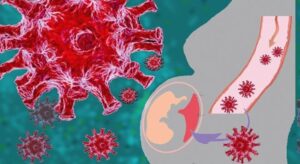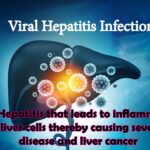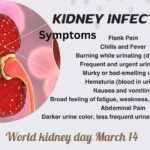Covid-19 treatment and opportunistic infections.
The ongoing Covid-19 pandemic has brought to the forefront, a need to have a strong immune system. Infections including opportunistic infections are a grave threat to quality of life and can cause death if the infection is not controlled.
What are infections?
Infection is the invasion, multiplication and destruction of local tissue by disease causing microbes. The mere presence of a disease causing microbe is not considered infection. There should be colonization and destruction of the tissue by microbes to be termed as infection. The tissue involved may be in one organ or in case of heavy infections, there are more than one organs getting infected. A dangerous type of infection is septicemia in which the blood gets infected and is a widespread infection. In septicemia, blood has high load of toxins and disease causing microbes and this is a life-threatening situation. Antibacterials or antibiotics help control bacterial infections by either arresting the multiplication or through various mechanisms of action – killing the bacteria (bactericidal effect).


Gram positive and gram negative bacteria
The bacterial cell wall has a special layer called peptidoglycan layer. This is required for the structure of bacterium. If the peptidoglycan layer is thick, then during what is known as the gram staining (or colouring) process done in labs to identify bacteria, the first primary colouring agent crystal violet is trapped in the peptidoglycan layer to a larger extent and is not easily removed in the subsequent steps of gram staining. Thus, the gram positive bacteria that have a thicker peptidoglycan layer will appear violet; it does not take up the second counter stain or colouring agent called safranin (pink colour dye) during gram staining process.
In the case, of gram negative bacteria, the peptidoglycan layer is thin. During the gram staining process steps, after application of crystal violet, which is the primary stain – this crystal violet is easily removed during subsequent steps of gram staining, since the peptidoglycan layer is thin and does not trap much of crystal violet primary stain, and consequently, the bacterial cell wall gets stained by the pink counter stain safranin. This way, gram negative bacteria appear pink under microscope and the gram positive bacteria appear violet. Gram positive bacterial infections are easier to treat than gram negative bacteria infections.
Viral infections
The disease causing viruses cause infection in host humans or animals in a different way. Bacteria do not enter the human cells to cause infections, the bacteria are located outside the host cell, whereas, viruses are obligate (compulsory) intracellular (inside the cell) parasites. Viruses have to enter the host cell to survive. Viruses are smaller than bacteria, maximum length or diameter depending on the virus shape, up to 120 nm size. Bacteria are bigger up to five microns in size. Viruses can attach themselves to bacteria too. Since, viruses are intracellular parasites; infections caused by viruses are difficult to treat. Any antiviral agent would have to get inside the host cell to stop the viral replication going on in the host cell.
Opportunistic infections
As the name indicates these infections occur due to decreased immunity, when there is an opportunity for growth in the colony of any disease causing bacteria or microbe – this is called opportunistic infection. The concept of opportunistic infection became very well known when HIV was a raging viral disease in the world. The human immunodeficiency virus (HIV) that causes AIDS (Acquired Immune Deficiency Syndrome) disease decreases T cell activity. Thereby immunity or self-defence system of the body comes down. And the result is that TB, skin infections and gastrointestinal infections causing severe diarrhoea result in the HIV patient. Hence, the patient dies due to the unrelenting attack of the opportunistic infections.
A concept related to opportunistic infection is super-infection. An example is the overgrowth of fungi in gastrointestinal tract due to antibiotic usage. This is a side effect of antibiotic use. It happens due to long term antibiotic use in vulnerable patients. In such cases of antibiotic usage useful bacteria of the digestive tract are killed along with the target pathogen or disease causing bacteria. And due to the decreased number of beneficial bacteria, fungal overgrowth happens leading to a super infection.
Covid-19 treatment and opportunistic infections
A similar challenge has arisen due to use of powerful anti-inflammatory glucocorticosteroid medicines in Covid-19 management. The use of medical oxygen that creates humid conditions in respiratory tract would have also created circumstances for the growth of typical fungi called mucormycetes, the resulting disease is a type of flesh eating fungal infection: mucormycosis. Use of steroids causes increased blood sugar levels, and if the patient is a diabetic Covid-19 case, then use of steroids causes a surge in blood sugar, which furthers increases susceptibility to mucormycosis. The overgrowth of mucor occurs in the nasal passages, sinuses, and the invasion intensifies to grow into the eye, brain and lungs. Mucormycosis results in facial tissue destruction, infection of the lower and upper respiratory system, lung infection, paralysis, and finally death. Treatment is through surgery and use of anti fungal drugs particularly injectable liposomal amphotericin.
The ongoing Covid-19 pandemic has brought to the forefront, a need to have a strong immune system which in the obese, diabetics, cardiovascular patients, cancer subjects and in those who suffer malnutrition, is compromised. Such people with weak immunity are more susceptible to Covid-19 and its treatment complications. Polyphenols, vitamins and minerals are required for immune competence. Further, oral hygiene through oral rinses, healthy gums and Covid-19 appropriate practices are highly important to avoid getting infected bythe SARS-CoV-2 beta corona RNA virus.
Infections including opportunistic infections are a grave threat to quality of life and can cause death if the infection is not controlled. Stay safe and get vaccinated against Covid-19.


Sunil S Chiplunkar
M Pharm (Pharmacology) MBA (Marketing) PGDHRM (PhD)
VP – Business Development, Group Pharmaceuticals, Bangalore
E mail: 1969sunilchiplunkar@gmail.com
Mob: 63645 78669











